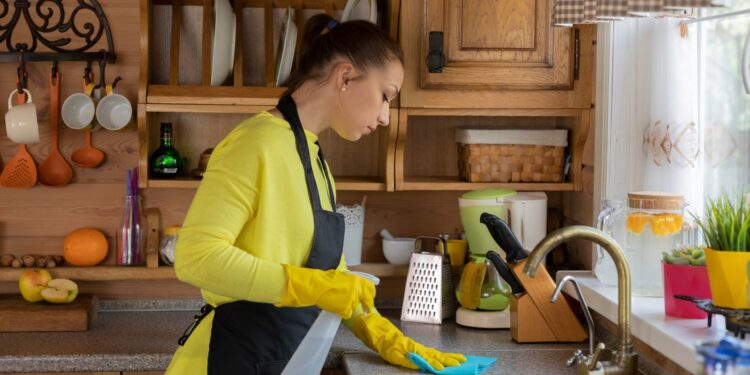If I Pay All the Bills Should My Wife Clean
If I pay all the bills, should my wife clean? This is a question that often arises in households where one partner takes on the financial responsibility while the other focuses on household chores. The answer to this question may vary depending on personal beliefs, cultural norms, and individual circumstances. However, it’s important to approach this topic with open communication and mutual understanding.
In many traditional relationships, there has been a division of labor based on gender roles. The idea that the person who pays the bills should also have their spouse responsible for cleaning can stem from these traditional expectations. However, it’s essential to recognize that times have changed and gender roles are no longer fixed or rigid.
In modern relationships, responsibilities within the household are not solely determined by who pays the bills. Instead, they should be discussed and agreed upon mutually. It’s crucial to have open conversations about expectations and find a balance that works for both partners. Whether it’s splitting household chores equally or finding alternative arrangements such as hiring help or sharing responsibilities differently based on individual strengths and preferences – what matters most is establishing a system that promotes fairness and harmony within your relationship.
The Division of Household Responsibilities
When it comes to the division of household responsibilities, there is often a lot of debate and differing opinions. Some may argue that if one partner pays all the bills, it is only fair for the other partner to take on more of the cleaning duties. However, this is not a one-size-fits-all situation and can vary greatly depending on individual circumstances and personal preferences.
- Communication is Key: The most important aspect of dividing household responsibilities is open and honest communication between partners. It’s essential to have discussions about each other’s expectations, strengths, and limitations when it comes to household tasks.
- Different Contributions: While financial contributions are vital for maintaining a home, it doesn’t necessarily mean that one person should bear the entire burden of housework solely because they pay all the bills.
- Equal Partnership: Creating an equal partnership means finding ways to distribute responsibilities based on each person’s availability, skills, and interests rather than solely focusing on financial contributions.
- Flexibility is Key: Life circumstances change over time – work schedules shift, children come into the picture, or health issues arise. It’s crucial to be flexible in adapting roles and responsibilities as needed so that both partners can contribute in a way that suits their current situation.
- Teamwork Makes the Dream Work: Ultimately, managing a home should be viewed as a shared responsibility rather than an obligation tied solely to financial contributions or traditional gender roles.

Shared Responsibility vs. Individual Contribution
In many relationships, this debate can become particularly heated when one partner pays all the bills while the other takes care of domestic duties. In order to better understand this issue, let’s examine the concept of shared responsibility versus individual contribution.
- Defining Shared Responsibility:
- Shared responsibility refers to a collaborative approach where both partners actively participate in maintaining a clean and organized household.
- It recognizes that a healthy relationship involves sharing tasks and working together to create a harmonious living environment.
- Recognizing Individual Contribution:
- Individual contribution acknowledges that each partner has unique strengths, interests, and abilities that can be utilized for specific tasks.
- It allows for a division of labor based on personal preferences and skills, rather than solely focusing on financial contributions.
- Finding Balance:
- Achieving balance is crucial in any relationship when it comes to household responsibilities.
- Communication plays a vital role in understanding each other’s expectations and finding common ground regarding cleaning duties.
- Financial Contributions vs. Domestic Duties:
- While it may seem logical for one partner to handle all the bills while the other handles all the cleaning, this approach can lead to imbalances and potential resentment over time.
- It’s important to remember that financial contributions alone do not absolve someone from participating in maintaining their shared living space.
- Shifting Perspectives:
- Instead of viewing cleaning as solely one partner’s responsibility or as an obligation based on financial contributions, consider reframing it as a joint effort towards creating a comfortable home for both individuals.
- Redefining Roles:
- Rather than assigning fixed roles or assuming certain tasks are gender-specific, couples can redefine their roles based on personal preferences and evolving circumstances.
In conclusion, achieving harmony in relationships requires open communication, understanding, and a willingness to adapt. While financial contributions certainly play a role in household dynamics, it’s important to recognize that shared responsibility and individual contribution are not mutually exclusive.














